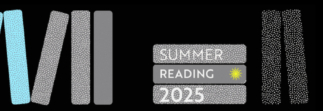The 14th Annual LIDS Student Conference, organized by the students of the Laboratory for Information and Decision Systems, included a panel of five MIT faculty who discussed the advantages of open access publishing, concluding that changes in traditional publishing are needed and inevitable.
Professor John N. Tsitsiklis, Clarence J LeBel Professor of Electrical Engineering and Associate Director of LIDS, moderated the panel, and opened the discussion with a reflection on journal pricing, noting that not-for-profit journals in his field are dramatically less expensive than their for-profit counterparts.
Professor David Forney, Adjunct Professor of Electrical Engineering, discussed the “shocking” and “scandalous” pricing policies of commercial journal publishers, who “exploit their monopoly mercilessly.” He believes that they are “bankrupting our libraries and impacting what else libraries can buy, including books.” Professor Forney recommended supporting professional society journals, and refusing to support commercial journals. His personal policy is not to review for Elsevier journals.
With respect to open access, Professor Forney reported that the IEEE Information Theory Society (of which he was President in 2008) has for the past five years supported the “physics model,” in which authors are encouraged to post articles on a preprint server (arXiv) before publication, for rapid dissemination and increased visibility. While the IEEE initially expressed some concerns about a possible impact on journal sales as a result of preprint posting, Professor Forney stated that in fact there has been “no demonstrable effect; no downside,” while the information theory section has become the most rapidly growing part of arXiv.
Professor of Mathematics Gil Strang focused on open access for books, concluding that “free textbooks will be the way.”He has made his own Calculus text available freely online.
Professor Alan V. Oppenheim, Ford Professor of Electrical Engineering, also spoke about books from the perspective of a textbook author, emphasizing that the partnership an author has with a book publisher can be win/win as long as the publisher does not act as a gatekeeper, but rather supports the author and the educational community in disseminating the work. He speculates that publishers will follow Polaroid’s model, selling content inexpensively as Polaroid did cameras, and deriving profit from related services, rather than the core product.
Professor Kai von Fintel, Professor of Linguistics, and Associate Dean of the School of Humanities, Arts, and Social Sciences, reported on his experience as co-Editor in Chief of a new open access journal in his field, Semantics & Pragmatics. The journal is sponsored by the Linguistics Society of America, University of Texas, and the MIT Libraries, and in contrast to commercial journals, has a very small budget.
They use open source software to manage the publication process, and all the work is performed pro bono except for typesetting of documents that are submitted in MSWord. This is the only real cost of publishing the journal.They perform traditional peer review, which is a feature from the traditional model that Professor von Fintel believes needs to be kept.
Professor von Fintel agrees with others on the panel that textbooks are likely to be shared freely.His textbook is currently openly available on the web, and when a publisher approached him about taking it over, he was not able to identify a single advantage that the publisher could offer him in return for publishing traditionally.Royalties for such books are not high in his field, and he’s already got the attention of the intended audience for the book.He updates the book every year, a process traditional publishers cannot support.
Professor Tsitsiklis concluded the panel by commenting that “there was not much controversy” expressed about where publishing is going and needs to go.
The panel was indeed united by common themes: the appropriateness of open access to scholarly work in cases where payment is not expected and the primary goal is the dissemination of ideas; the merits of the arXiv-style preprint server for sharing work quickly and openly; the inevitability of open access textbooks; and the advantage of inexpensive open access journal alternatives.Questions remain about the form books will take given a change in the value proposition for book publishing, and which types of books will be open access, but overall, it would seem the panel agrees with Professor Oppenheim that “traditional publishing should perish,” as “anything stagnant should.”
More information on open access publishing, see:
MIT Libraries’ Scholarly Publishing Website
More faculty voices: Podcasts on Scholarly Publishing & Copyright
or contact copyright-lib@mit.edu.

